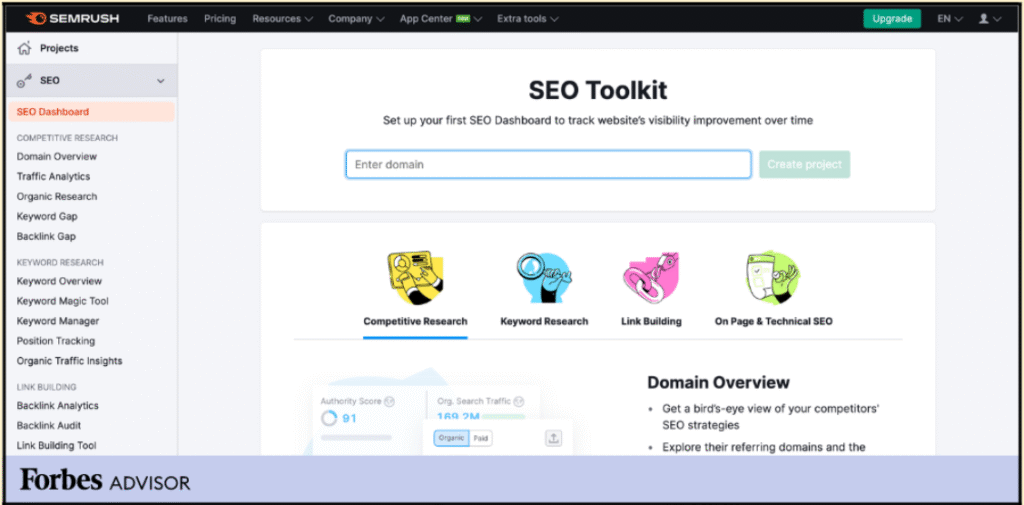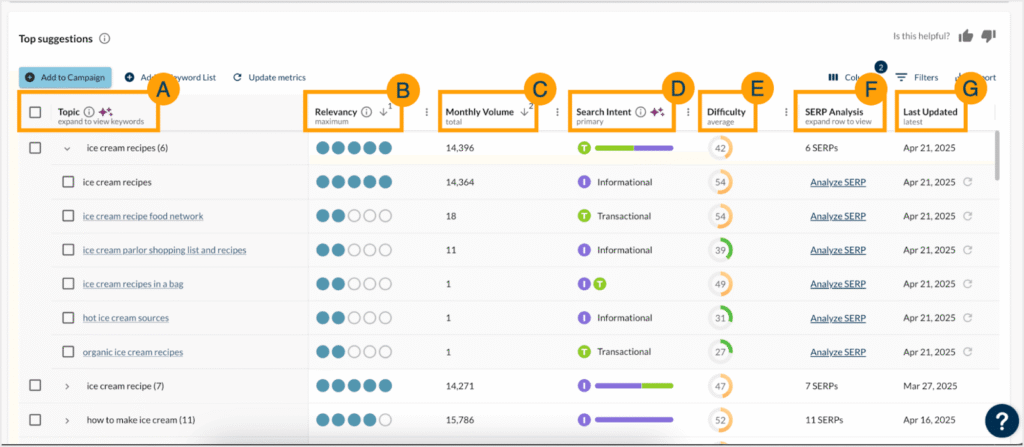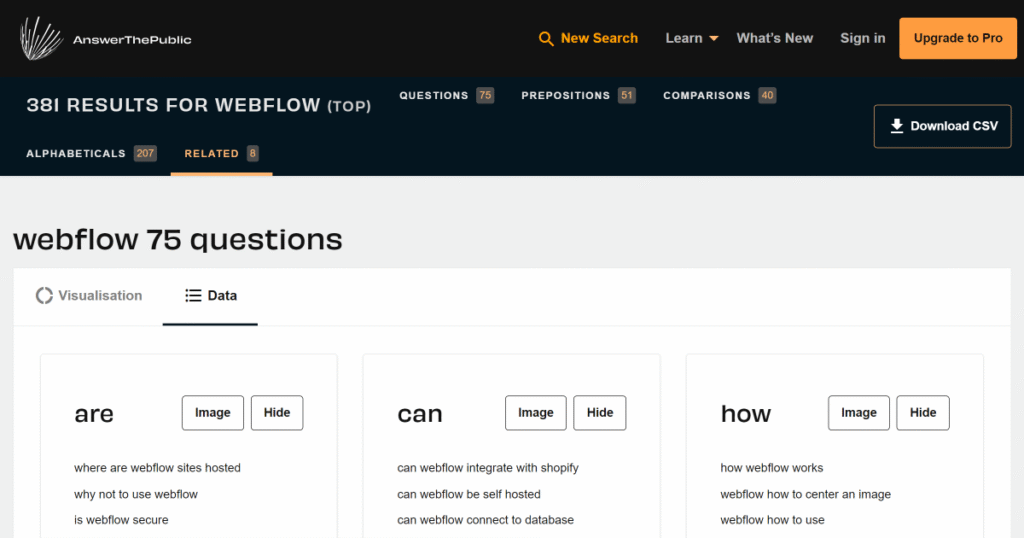Keyword research has always been the core element of Search Engine Optimization (SEO). No matter how advanced search algorithms evolve, the correct keywords remain the foundation of successful SEO efforts. By 2026, this will be more advanced than ever. With the rapid development of AI-based search, voice search and smart algorithms, keyword research is now about not chasing high volume searches anymore. It’s all about understanding user intent, search behavior and relevance.

Keyword research is the method to identify the words and phrases your targeted audience employs to search information, product, or service online. With successful targeting of these keywords, companies can align their content strategy to match what individuals are searching for. Keyword research, when properly executed, can generate visibility, qualified traffic and define authority in an active online environment.
In this blog, we’ll explore the five best keyword research tools in 2026 that are helping marketers, businesses and creators stay ahead of the curve. Each tool offers unique strengths, and choosing the right one can make a significant difference in your SEO performance.
What Makes a Keyword Research Tool Powerful in 2026
Keyword research software in 2026 is far more developed than simple lists of search terms. Present-day software incorporates AI, machine learning and intent-analysis to provide more accurate and actionable data. A good keyword research tool must provide real-time data to allow marketers to remain in sync with changing trends. It must provide a clear image of what people are searching for, as well as why.
These tools also need to help in examining competition, search volume, click-through potential and search intent behind the searches. Integration with content plans, voice search and SERP features is a must today. In short, the top tools today allow SEO experts to develop strategies based on data instead of guesses.
1. Google Keyword Planner

Google keyword Planner, the Google-provided tool, remains one of the most effective and well-used keyword research tools. The biggest benefit of the tool is that it is directly connected to the data of Google, offering insights that reflect real-world search behavior. This makes it a sought-after choice for businesses who want to know search volume trends, competition and keyword performance potential.
Google Keyword Planner is especially useful for marketers who are running organic and paid campaigns. It helps to discover new keyword ideas, how frequently they are searched, and coordinate content strategy accordingly. Since it is extremely integrated into Google Ads, it helps marketers coordinate their SEO and PPC approaches to achieve maximum visibility. While it misses some of the more sophisticated AI-based features of more modern tools, its accuracy and dependability are a foundational element of any keyword effort.
2. Semrush

Semrush continued to do what its name suggests and stand as one of the strongest SEO platforms, and in 2026 it remains the first choice of pro marketers. It provides its Keyword Magic Tool, where it expands beyond mere lists of keywords and delves deep into search intent, topic clusters, and competitor performance. What sets Semrush apart is that it can provide context-based insights that allow businesses to make informed decisions.
With Semrush, clients are able to analyze trends in search volume, ascertain keyword intent categories such as informational, commercial and transactional, and monitor SERP features. The platform’s competitive analysis tools allow marketers to understand how their competitors are performing and what opportunities lie ahead. That amount of analysis makes Semrush ideal for businesses that have to develop solid data-driven content strategies and get ahead of the competition.
3. Ahrefs

Ahrefs has long been renowned for its unmatched backlink index, but today its Keywords Explorer is equally powerful. Ahrefs, in 2026, stands alone in providing reliable clickstream data that can be employed to estimate real clicks, and not just impressions. Its keyword difficulty scores are computed with advanced algorithms, considering backlinks and authority metrics, so its data is very reliable for strategy planning.
Yet another reason why seasoned SEO professionals like Ahrefs is that it has a worldwide vision of search behavior. It does not focus on one region or language but provides correct keyword metrics for multiple markets. Therefore, it is ideal for businesses targeting worldwide audiences. Besides, Ahrefs unites keyword data with content-gap analysis, which makes it simple to spot new opportunities to outperform the competition. For organizations that wish to develop long-term, successful SEO strategies, Ahrefs is a data behemoth.
4. Moz Keyword Explorer

Moz Keyword Explorer is still a favorite among small and mid-sized businesses and marketers who value simplicity without losing functionality. Its simplicity in design and readability of reports makes it newbie-friendly but still delivers professional-caliber insights.
What stands out about Moz is that it includes a Priority Score feature, which combines search volume, keyword difficulty and organic click-through potential and bundles them into one statistic.
This makes it easier to decide on what keywords are actually worth targeting. Moz also includes SERP analysis and Page Authority metrics that allow marketers to see what types of content are ranking now and how to place their own content in a competitive position. While Moz lacks more feature-laden choices than Ahrefs or Semrush, it is nonetheless an extremely powerful tool for formulating effective SEO campaigns because of how easy it is to use and how accurate the data is.
5. AnswerThePublic

If it is a matter of looking at the way real humans pose questions online, AnswerThePublic is revolutionary. Compared to the majority of other keyword tools, which provide lists of keywords, this tool maps out search queries as a way of questions, comparisons and long-tail phrases. This is especially invaluable in 2026 with voice search and conversational search on the rise.
AnswerThePublic helps marketers and content creators determine what people are looking to know, what problems they are trying to solve, and how they naturally phrase their questions.
Thus, it’s an appropriate platform for content creation that is aimed towards true user intent. Whether writing blog posts, building landing pages, or creating FAQs, AnswerThePublic will assist one in knowing precisely what keywords their intended audience uses, thereby increasing one’s chances of higher rankings and better reader engagement.
AI-Driven Keyword Research in 2026
Keyword research in 2026 is no longer limited to hand tools. AI has been an integral component of how marketing professionals discover and build keywords. Marketing professionals are able to brainstorm entire topic clusters, develop semantic keyword variations, and search for competitor patterns at unprecedented rates using tools like ChatGPT in conjunction with real-time SEO data and plugins.
AI-driven keyword research is more than generic data. It allows marketers to observe trends in search behavior in real time and uncover hidden opportunities. For example:
- Brainstorming related topics for search intent needs.
- Content gap analysis, which may not have been done by the competitors.
- Semantic variation generation of keywords that are relevant to voice and conversational search.
By combining AI technology with instruments like Semrush or Ahrefs, marketers can develop all-encompassing strategies for targeting high-volume keywords alongside intent-based long-tail phrases. That combination of tried-and-tested tools along with AI knowledge is the key factor that gives today’s SEO campaigns their competitive advantage.
Choosing the Right Tool for Your SEO Goal
Each of the keyword research tools has different strengths, and the best for you will depend on your specific needs.
If you want competitive analysis and data-driven findings down to the nth degree, Ahrefs or Semrush will give you the most complete picture. If ease and cost are most important, Moz and AnswerThePublic are your best options. Google Keyword Planner is still in the toolkit if one wishes to test hypotheses from real Google data and align SEO with PPC campaigns. For those who wish to speed up their strategy and ideation, AI tools can be used in conjunction with traditional platforms in order to cover every base. In actuality, ideal SEO strategies are really a combination of these tools and not individual tools.
Pro Tips for Maximise Keyword Research Results
- Start by developing Keywords Cluster and not working with one keyword. Clustering related terms that share similar search intent and content relevance.
- Mix high-volume, low-competition and long-tail keywords; relying only on high volumes won’t function if intent or competition is being mismatched.
- Keep up to date in your research; algorithm updates, search feature updates and voice-search trends can quickly alter what is competitive.
- Use AI as a means, not an end; AI can be employed to speed up ideation and semantic variation, but needs to be validated with real keyword data.
- Always tie keywords to content strategy; the keyword is merely the entrance; your content must satisfy intent and deliver value to convert traffic into outcomes.
Conclusion: Smarter Keywords, Smarter Growth
Keyword research remains the cornerstone of effective SEO during this ever-changing digital age. Pure volume is no longer the sole priority in 2026 but the intent of the user, relevance and smart strategy. With the right blend of tools like Google Keyword Planner, Semrush, Ahrefs, Moz and AnswerThePublic with added AI-powered knowledge you can formulate effective strategies that drive your content to greater heights of ranking and find the right audience.
The magic of good SEO is not just identifying the right keywords but understanding the humans conducting those searches. Intelligent keyword research fuels intelligent content, better rankings and sustainable growth. Start experimenting with these tools today and take your brand ahead of the pack in 2026 and beyond.
Related Link: